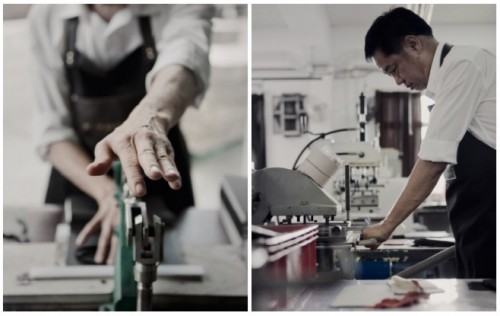 Source: BYND Artisan website Source: BYND Artisan website |
By AsiaToday reporter Jina Koh – Asia's small and medium-sized enterprises (SMEs) are seeking differentiation and niche marketing in struggle to survive. Introducing either information technology (IT) or unique strategy is the only way to survive in fierce competition.
BYND Artisan, a Singaporean small business dealing with high-end stationery, is now focusing on building an e-commerce platform to reduce its dependence on existing offline stores. It began using Xero, a digital accounting solution provided by United Overseas Bank Limited (UOB), to sync banking transactions.
The company's founder, James Quan, recently had an interview with local media The Straits Times, and said, "It gathers real-time information and automatically adjusts bank accounts, enabling us to significantly improve our productivity and focus on other key functions."
IT utilization is becoming an essential tool for SMEs. According to a UOB survey of local SME operators, more than 80% of respondents believed digital technology can help their firms grow. More than 50% said they expected digital technology would help them reduce costs, reduce staff dependence, and help standardize business processes.
The SME Solution Expo held in Malaysia last year was the place to see what kind of strategies the Asian SMEs were making in addition to utilizing IT.
Mr. Brian Lee, Managing Director of Elephant Mountain Coffee, participated as an exhibitor and revealed that his company provided quality coffee at reasonable prices as a strategy to survive competition with large coffee chains like Starbucks and Coffee Bean. He said, "As the start-up phase is easy, competition is very fierce."
The Malaysian company VVV Suite, which offers virtual offices and meeting rooms, is trying to differentiate itself from other companies with flexible payment methods. In view of the tight budgets of SMEs, the company revised its strict initial payment system, in which other companies request startups to pay three months in advance. Instead, the company adopted a flexible method of setting a two-month initial payment. The company plans to expand its business to vibrant markets, such as Dubai, Australia and Singapore.
Rather than setting a broad product range from scratch, a small-scale strategy is used among SMEs. Red Wheels Marketing, a Malaysian family business that handles customized safety vests and apparel, is a leader in the domestic market and exports to Hong Kong, Thailand, and Germany.
The company has multiple product lines, including customized raincoats and apparel, work clothes, insulated backpacks, and even backpack beverage dispensers. But in the early days, it only produced one product. "We started out by producing eight T-shirts for a local client," said Haji Kamaruzaman, general manger of the company. He said, "Now we are the leader in the Malaysia in the safety apparel market."
Those SMEs that show growth potential are financed by or sold to large foreign companies. China's CITIC Capital Partners has formed a buyout fund of JPY 30 billion or $267 million for Japanese companies with promising technologies and products in the medical, environmental, and consumer sectors.
The company plans to select 10 potential Japanese companies over the next three years. It will target small and medium-sized companies that lack funds in overseas markets. It has already invested 3 billion yen in Japanese apparel company MARK STYLER and footwear retailing company Akakura.
#SMEs #Asia #niche marketing #differentiation #IT
Copyright by Asiatoday
Most Read
-
1
-
2
-
3
-
4
-
5
-
6
-
7





















